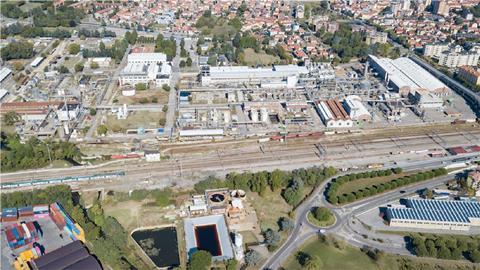
Specialty material solutions provider Trinseo is aiming to advance the potential of sustainable plastics with its polymethyl methacrylate (PMMA) depolymerization plant in Rho, Italy, apparently enabling efficient recycling of PMMA-based materials.
Scheduled to be commissioned in Q1 2024, the company says the demonstration facility marks a step towards reshaping the plastics ecosystem as part of the circular economy. Reportedly, PMMA will be transformed through the recycling and purification process in order to re-enter the plastics value chain and support circularity.
This depolymerization operation will be designed to enable the efficient recycling of end-of-life PMMA as well as other difficult to recycle structures, which will ultimately be used to produce acrylic resins, sheets, and compounds containing recycled materials. Depolymerization is a chemical recycling technology which is complementary to more traditional mechanical recycling processes.
Trinseo says that while mechanical recycling is vital to a successful circular economy, depolymerization creates new opportunities by reducing the polymer back to its constituent monomers, allowing for the recycling of a wider variety of PMMA-based materials, supporting an increase in recycled content and overall recycling rates, and helping reduce the manufacturing demand for virgin materials.
“Innovation in recycling technologies is imperative to effectively recycle various types of materials. This new facility is yet another major achievement towards a scalable system with the goal of making PMMA a truly circular material of high quality,” said Trinseo’s chief sustainability officer, Francesca Reverberi.
“When combined with our own in-house sourcing and treatment of collected materials through our Heathland recycling operation, our PMMA depolymerization plant will offer a high-performance solution for a world increasingly looking for new ways to address sustainability in the plastics supply chain,” added Reverberi.
Trinseo states its depolymerization facility is being developed around a continuous recovery model to produce high quality recycled PMMA that matches the quality of its virgin counterpart, promoting a circular plastics value chain without compromising performance. Using this advanced recycling technology, introducing recycled monomers into the supply chain can allegedly support targets for lowering carbon emissions, water consumption and conserving natural resources, as indicated by the MMAtwo project’s environmental benefits calculator.
Apparently, material produced using the depolymerization process will be integrated as part of Trinseo’s “R-Life” portfolio designed around a commitment to sustainability, covering both mechanically and chemically recycled PMMA grades, with these products finding applications across mobility, construction, and consumer goods.
Back in 2022, Trinseo and GMP established a European polystyrene recycling plant, and in May this year Trinseo partnered with RWDC Industries in a push for PHA dispersion technology to advance the development of paper barrier coatings.
If you liked this article, you might also enjoy:
The L’Oréal approach to packaging sustainability
What steps is Apple taking to make its packaging more sustainable?
How did Brazil achieve its 100% aluminium can recycling rate – and can it be replicated in the EU?
Experts have their say on the EU’s Packaging and Packaging Waste Directive revisions


















No comments yet